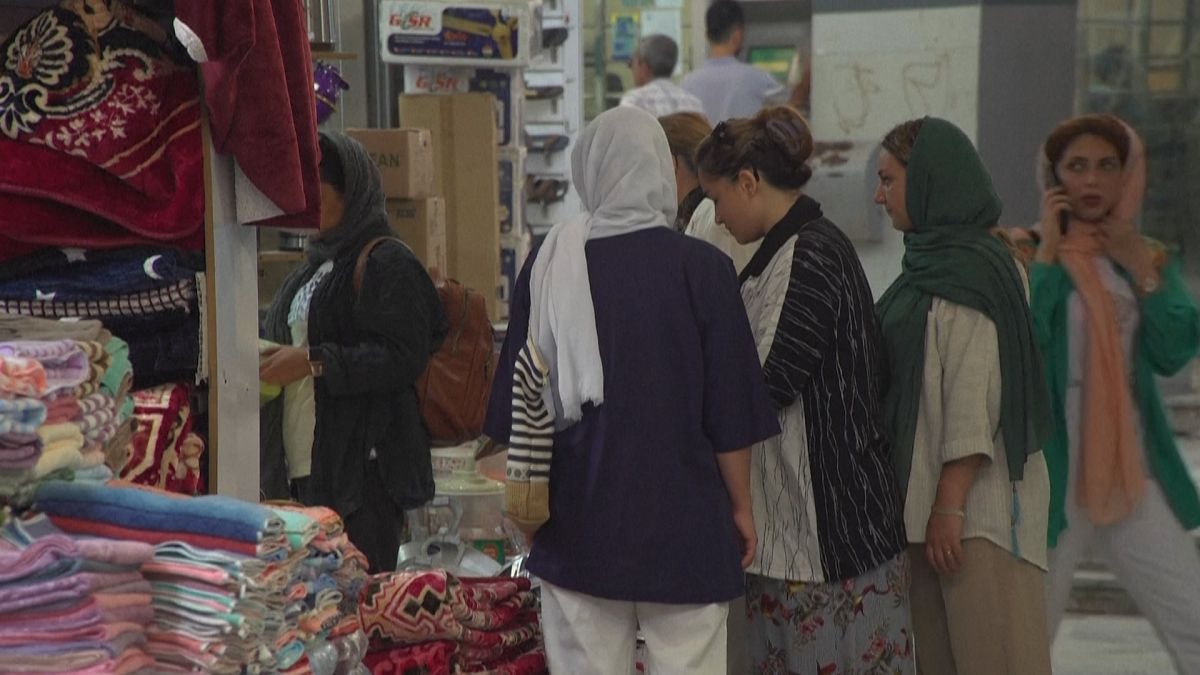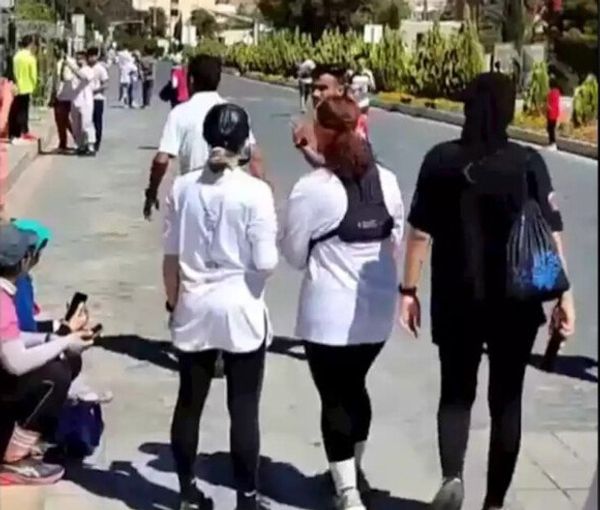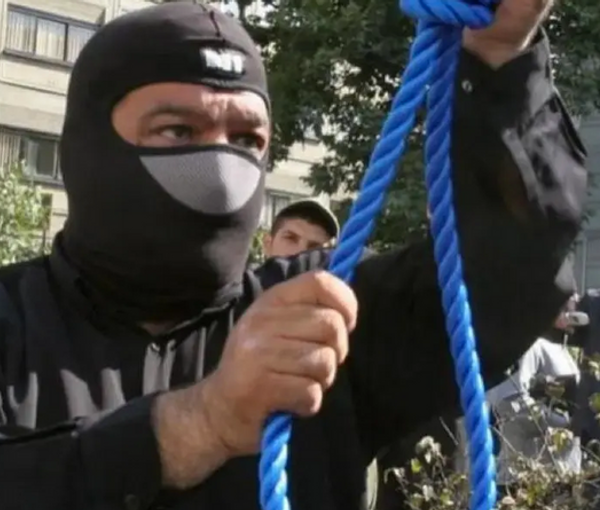
Agreement With China, Russia, Saudi Arabia Will Not Come to Fruition Without Agreement With the West
The editorial of Arman Melli argues that without reviving the nuclear deal and signing the FATF bills, Iran is not going to fully benefit from the agreements it has signed with Saudi Arabia, China and Russia.
The agreement between Iran and Saudi Arabia put an end to the relatively long hostilities and tensions between the two countries in the region, showing that the era of regional diplomacy has started. Abandoning the longstanding hostility and turning toward a relationship based on understanding is an important breakthrough.
But this agreement also shows that in so far as no bigger and more significant agreement has been reached over the nuclear deal, not only the agreement with Saudi Arabia but also deals with Russia and China will not have significant outcomes for Iran. The requirement for economic prosperity in the country is establishing political and then economic relations with Western countries, and without restoring the nuclear deal (JCPOA), one cannot hope for enjoying the outcomes of regional and transregional agreements and deals. Reviving the JCPOA reassures the world about Iran’s nuclear activities. The next issue is signing the FATF bills, which has created many complicated issues in Iran’s trade relations. Not reviving the JCPOA and not signing the FATF bills have rendered the Iran-China 25-year agreement useless in actuality.
Once and for all, the Iranian establishment must make a decision on enhancing relations with the West. Iran’s nuclear case has been dragging on for 20 years, while impacting people’s social, economic, political and even cultural life.
While former President Hassan Rouhani and his team made significant progress in reviving the JCPOA, Ebrahim Raisi and his team destroyed 80% of the progress made by former Foreign Minister Mohammad Javad Zarif in this regard.
In recent years, not reviving the JCPOA has resulted in the loss of many opportunities. Because of sanctions, Iran has not been able to seize the opportunities created after the outbreak of the Russia-Ukraine war.
What Have Raisi’s Supporters Been Hoping For?
The editorial of Jahan Sanat reviews the different problems in Iran, urging that Iranian President Ebrahim Raisi has failed in fulfilling his promises.
This year has been designated as “the year of fighting inflation” by the Iranian supreme leader while the Iranian government has claimed to have devised extensive measures for containing runaway inflation rate and skyrocketing prices. In recent weeks, however, there has been a 15% to 30% increase in the prices of different goods.
These goods are mainly related to people’s tables and basic needs, thus having an impact on the lives of Iranian citizens. For instance, some dairy products’ prices have increased by roughly 20% and different kinds of Iranian rice have become more expensive by 30%. There have also been significant increases in the prices of eggs and chicken.
Now it is only normal to ask: what would have happened if they were not resolved on fighting inflation? Now, the situation is much worse when it comes to housing and rents, and it is impossible to make any logical predictions about the housing market. Meanwhile, the price of the dollar is still on the rise and the Central Bank, despite its promises, has not been able to control it. There are reports regarding the government’s intention to sell Iran’s cultural heritage to provide for its financial needs.
In the meantime, the Iranian authorities, including President Raisi, do not seem to be concerned at all and are optimistic about the future. The Iranian authorities claim that the country is dealing with the same problems which exist in Europe and the United States. But it is not clear why having an ordinary life in Iran has become so difficult while the citizens of even crisis-stricken countries like Turkey are living normal lives.
Raisi has been in office for almost two years, but the promises he made to gain people’s votes have not been fulfilled. And some of these promises, like building 1 million houses per year, cannot come true. In cases like the nuclear talks for ending the sanctions, improving people’s access to the internet and granting citizens more civil freedoms, the situation has become much worse.
Is this what supporters of Raisi really hope for?
Relationship Between Liquidity and Inflationary Expectations
The editorial of Tejarat sheds light on the fact that the main cause of inflation is the sanctions imposed on Iran.
The increase in liquidity is the effect and not the cause of the economic crisis. Liquidity is not the only cause of the current economic disarray. The fiscal imbalance in the banking sector has exacerbated the situation. This imbalance is because of huge debts and embezzlements. To be able to be accountable to depositors, banks have to borrow from the Central Bank.
On the other hand, the government’s budget deficit makes the situation more difficult for banks because the government has to borrow from banks, thus partially increasing the inflation rate.
To identify the main cause of the high rate of inflation and the fiscal imbalance of banks, we must take a step back. It is right to say that the government and the Central Bank must control the level of liquidity, but how can the government do so? Now, the Iranian president and the economic minister must be held accountable for this situation, but do we see such accountability?
The Central Bank must be asked if the government is providing for its budget deficit by increasing liquidity. Why is not the Central Bank offering any explanation regarding this huge problem? Why is there a budget deficit and why are banks suffering from fiscal imbalance?
It must be emphasized that the current economic crisis is related to the sanctions imposed on the country. When oil revenues do not enter the country and the government cannot meet its expenses, it turns to increasing liquidity.
In fact, the sanctions have not only created such conditions in the economy, but have also increased liquidity. But most of the time, instead of talking about the sanctions as the main cause of the economic crisis, liquidity has been presented as the main cause.
This is not going to work. The government says it will control liquidity, but its efforts will be in vain: increases in liquidity have not been contained over the past years and the problem remains ongoing.
Violence Is Not Acceptable
The editorial of Arman Melli cites recent cases of violent attacks on clerics in different cities of Iran, urging that such brutal measures are because people blame clerics for all their problems and difficulties.
Different images and videoclips of confrontations and scuffles have been released on social networks showing the realities of Iranian society. Of course, violence has not become common among people, and we see that the majority of people condemn violent behavior. The most prominent aspect of Iranian society is that, despite the many challenges it is now facing for economic reasons, it does not tolerate egregious behavior.
Only rarely does the whole of society support behavior which is far from equity, morality and sharia. Of course, there are individuals who favor such violent behavior while disregarding what such violence against citizens might do to society.
Recently, we have seen that some clerics have been the victims of violence in different cities. The truth is that all clerics are not officials, and even if they are, that is not necessarily a problem. But for various reasons, including economic pressures, some people in Iran blame clerics for the current situation and employ violence against them.
Although these incidents must be considered from different sociological and psychological perspectives, there are different political factors that have contributed to this trend. Some people think that all their trials and tribulations are because of clerics which is why sometimes individuals might turn to violence against the clerics.
Ironically, the clerics are attacked simply because they are clerics as if they are the cause of skyrocketing prices and inflation. Again and again, the Iranian authorities have been asked not to act in a way that would damage the position of clerics in the society.
There is no way but to better the conditions because people feel there is no hope for any improvement in the country’s economy in the future, and eventually some people manifest their discontent in the form of violent behavior.

Improvement in Iran-Saudi Arabia Relations Makes People on Qeshm Island Hopeful

For years, economic sanctions against Iran have impacted the country’s economy and politics significantly. Residents of Qeshm Island, located in the Gulf, however, hope that the new developments in Iran-Saudi Arabia relations might bring them economic prosperity.
Fluctuations in the forex rate after the political developments in recent years have affected the lives of people, particularly businesspeople, in the southern islands of Iran. Along the southern coast of Iran, the business community in Qeshm is closely and optimistically following the regional changes which will impact their businesses in the future.
Retailers who import goods from the Gulf states maintain that the most important thing in life is having good relations with neighbors. Following the resumption in relations between Tehran and Riyadh after seven years of severance, Qeshm’s business community is monitoring the developments, knowing that these changes can positively affect the Gulf region.
In addition to Saudi Arabia, Tehran is also after bettering relations with other neighbors including the UAE and Bahrain that cut their ties with Iran in 2016.
A trader in Qeshm Island stated that if Iran’s relations with its neighboring countries improve, then it can have a better relationship with the rest of the world as well.
Due to international sanctions and the fraying of diplomatic ties, businesspeople and traders in Qeshm have faced many problems in recent years, driving some of them to bankruptcy.
Problems with neighboring countries have also affected the personal lives of people on this island and the southern parts of Iran. Hundreds of thousands of Iranians who live in the UAE, for example, face difficulties in meeting their family members.
It is expected that with the improvement in relations with neighboring countries, Iran will resume its flights to the Gulf states, and Iranian officials had announced earlier that there will be three weekly flights from Tehran to Riyadh.
Tehran also hopes for expanding free trade zones. These zones were launched three decades ago for attracting investors and tourists in southern Iran.
Qeshm, along with Kish Island and Chabahar port, is a tax-free zone and enjoys special regulations for importing and exporting goods.
Iranian Women Resist Obligatory Hijab on Land and in the Air; Authorities Intensify Crackdown

The increasing number of acts of civil disobedience by Iranian women against compulsory hijab has bewildered the authorities in a way that they either intensify their to-no-avail threats or issue bizarre directives.
The most recent of such measures was taken by Prosecutor General Mohammad Jafar Montazeri who has ordered pilots to act as “bailiffs” in planes and to give “serious warnings” to “veilless women” on domestic flights.
Montazeri added that pilots as “commanders of planes are legally bound to act as bailiffs, prosecuting, arresting and conducting initial investigations” in this regard. He made these comments in a letter to the minister of roads and urban planning, adding that the prosecutor’s office is ready to provide pilots with the “necessary training” about the issue.
Lawyers, however, negate Montazeri’s words, saying pilots and their flight crews are neither bailiffs, nor have authorization to confront citizens, even if they commit an evident crime.
Meanwhile, a sports event in which women participated sparked controversy in southern Iran, leading to the summoning of authorities as well as several resignations. During a 10 kilometer marathon in Shiraz, women participants and spectators refused to wear the hijab.
Immediately after the images and video clips showing veilless women running in the streets of downtown Shiraz were published on social media, not only the prosecutor’s office of Fars
Province summoned the officials responsible for the event, but also several officials resigned, including the Head of Iran’s Athletics Federation Hashem Siami.
The police and the judiciary have taken intensive measures to suppress women’s rejection of the veil, including attacking women on the street in the name of “enjoining good and forbidding evil,” shutting down several commercial centers, sending text messages to public and private drivers as well as seizing their vehicles, forbidding veilless women to enter the subway and denying their access to public services.
On top of that list stands the statement of Supreme Leader Ali Khamenei who considers the refusal to wear the hijab as “haram” both “Sharia-wise and politically.”
26 Balochi Citizens Executed in Nine Days

With an increase in the number of executions in the past two weeks, at least 26 Balochis were executed in nine days. UN Human Rights Chief Volker Turk has called the number of executions in Iran “frightening,” calling for an end to “this crime.”
Turk expressed his concern over the high number of executions in Iran, demanding that the Iranian republic’s officials must, in compliance with other countries, stop the executions. He added that on average more than 10 individuals are executed in Iran, making it one of the highest rates of execution in the world.
According to UN reports, since January, at least 209 individuals have been executed in Iran, mostly in relation to drug-related crimes, but the exact number of the executions is not clear due to the lack of government transparency and the real number is probably higher.
In the meantime, Haalvsh website which covers news from Sistan and Balochistan Province, has reported the names of those executed in the past nine days, stating that with the beginning of the nationwide protests last summer, the number of executions of Balochi citizens has considerably increased.
According to the families and relatives of those executed, due process was not followed and many of them made confessions under coercion.
Human rights activists consider the increase in the number of executions of Balochi citizens as a systematic measure of repression against the people in Sistan and Balochistan Province.
In addition to Balochi citizens, in recent days, other citizens were also executed on different charges including Swedish-Iranian citizen Habib Farajollah Chaab, known as Habib Asiod, for “corruption on earth” and Yusef Mehrdad and Sadroallah Fazelli Zareh for “blasphemy,” both charges punishable by death in Iran.
Forex Transfers Get “More Difficult,” Says Iran-Iraq Chamber of Commerce Official

The secretary-general of the Iran-Iraq Chamber of Commerce says that the Central Bank of Iraq does not “provide US dollars” for forex transfers to Iran.
Jahanbakhsh Sanjabi Shirazi told ILNA that forex transfers with Iraq are not possible without SWIFT and Iranians cannot transfer US dollars through the banking network. He added that in order to transfer the forex generated from Iranian exports, Iranians have to use Iraqi currency exchange offices which sell dollars at the Baghdad free market rate, and this is disadvantageous for them.
Shirazi, however, did not mention the different rates of forex in Iraq. The official rate of the US dollar in March was 1,460 dinars in Iraq while it was sold for 1,750 dinars in the free market.
Moreover, Iran’s exports to Iraq amount to $9 billion while imports from this country to Iran are far less than that. Shirazi remarked that Iraqi imports to Iran witnessed a 700% increase in 2022 in comparison to the previous year.
Iran’s imports from Iraq exceeded $1 billion in 2022. In addition to the export of Iranian goods to Iraq worth $9 billion, Iran also exports electricity and gas to Iraq.
Yahya Al Eshagh, head of the Iran-Iraq Joint Chamber of Commerce, recently pointed out that Iraq’s debt to Iran for importing electricity and gas has reached “$7 billion to $8 billion.”
